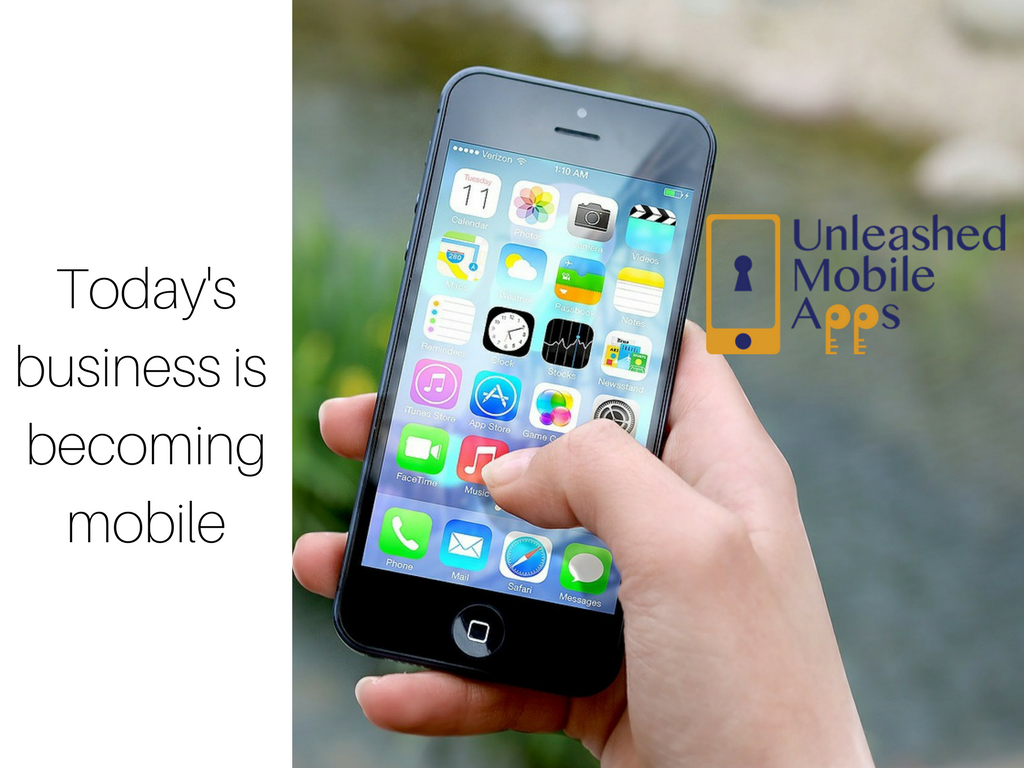The days of mobile apps being out of reach for small businesses are over.
Business and mobile
As Small Business Trends reports, B2B research company Clutch predicts that 50% of all small businesses will have a mobile app by 2017. However, many businesses still rely on mobile-friendly websites alone to serve their increasingly mobile-oriented customers.
The mobile app dilemma
Roughly fifteen years ago, when websites first became essential for business, they often met the same resistance that mobile apps face today. Programmer and SEO director Daniel Cristo described, in the blog Marketing Land, his struggles in 2002 trying to sell web design services door-to-door. He recalls one local restaurant who turned him down, insisting, “We have a sign. We don’t need a website.”
As you can see, this business owner turned down a major opportunity. He couldn’t guess a website’s future potential, so he missed the chance to stand out from the competition when consumers started embracing the Internet in greater numbers.
Today’s business owners face a similar opportunity in the form of mobile apps. This leads us to seven misconceptions that business owners need to understand as they weigh their mobile technology options:
Misconceptions of mobile apps
1. If your business has a mobile-friendly website, you don’t really need a mobile app.
In many ways, yesterday’s storefront sign is today’s mobile website. It’s an absolute must-have for businesses to reach customers, but would perform even better with additional technology. Using both will enable your business not only to reach more customers, but also to minimize the flaws and enjoy the advantages of both platforms.
2. Mobile apps don’t offer any special features in addition to those on mobile websites.
Mobile apps provide several distinct advantages not possible with mobile websites alone. A brief list of some of the features apps offer:
- Mobile loyalty programs, which are convenient for customers to use and encourage regular visits to your location
- Push notifications, which alert users to your business’ events and specials, with the option of geo-fencing to reach specific locations
- Ordering tabs and special request forms for fast, easy transactions
- Options for customers to upload photos and other user-generated content
- Events tabs, which can track attendance and boost customer participation
- Other tabs customized for your business’ needs, so all the information you want to share with users is right at their fingertips
3. Mobile apps and websites deliver roughly the same customer experience.
When it comes to delivering a customer-friendly, personalized experience, apps have an edge over mobile websites. Mobile apps are optimized for faster load times and can access basic information even without an internet connection.
If you choose to sell advertising space within your app, these messages will be much less obtrusive than traditional ads. Background product photos, for example, can be integrated seamlessly into the rest of the app.
Overall, apps are far less distracting for users. Mobile websites have to drown out the ads, hyperlinks, extra tabs, and other aggravations of mobile browsers. With a mobile app, the entire space is devoted to your company and the features your customers want to access, without unnecessary diversions or interruptions.
4. Mobile apps are only for major corporations.
As previously mentioned, more and more businesses—of all sizes—are incorporating mobile apps into their mobile marketing strategies. The cost of developing apps has fallen dramatically in recent years, and you can easily find affordable options for your company. With increased customer engagement from loyalty programs, direct revenue from in-app ads and other benefits, an app’s value can easily outweigh the costs.
5. Mobile apps don’t give you much edge over the competition.
Even though small business mobile apps are becoming increasingly common, it’s not too late to stand out from the crowd. Small businesses who create mobile apps now will convey an innovative, forward-thinking image. There is still a window of time to get started with an app before the market becomes saturated with similar apps from competitors. As an early adopter, your business will have longer to share the app with your target audiences and gain users than the latecomers will. Additionally, by organically improving your SEO, a mobile app will help set your brand apart in crowded internet searches.
6. Mobile websites alone can keep up with increasingly digital customer preferences and behavior.
Mobile apps dominate consumers’ attention when they use mobile devices. According to data from Yahoo’s Flurry Analytics, reported by All Business, 82% of tablet usage and 88% of smartphone usage takes place in apps. Users devote much of that time to the same go-to apps like Gmail and Facebook, but there’s plenty of room for your business as well. Unlike a mobile website that consumers have to seek out or discover in a web search, your business’s mobile app would maintain a constant presence once downloaded. It’s a distinctive, long-lasting reminder of your brand, right in the devices your customers use every day.
7. Mobile websites are not worth the cost or effort.
If you create a well-designed app and seek out new users, the benefits are practically guaranteed to outweigh the costs. With a more convenient and personalized customer experience, multiple possibilities for direct revenue and increased customer engagement, mobile apps bring nearly endless possibilities.
Mobile apps create opportunity which equals growth
In many ways, mobile apps do not receive the credit they deserve; that may change in the near future. All signs point to a mobile-app driven future, and forward-thinking businesses stand to gain the most from this change. Contact Unleashed Mobile apps to be an early adopter and forward thinker. We can help you out with various options from DIY to complete custom mobile app development as well as training your team or think tank to help get you started.




